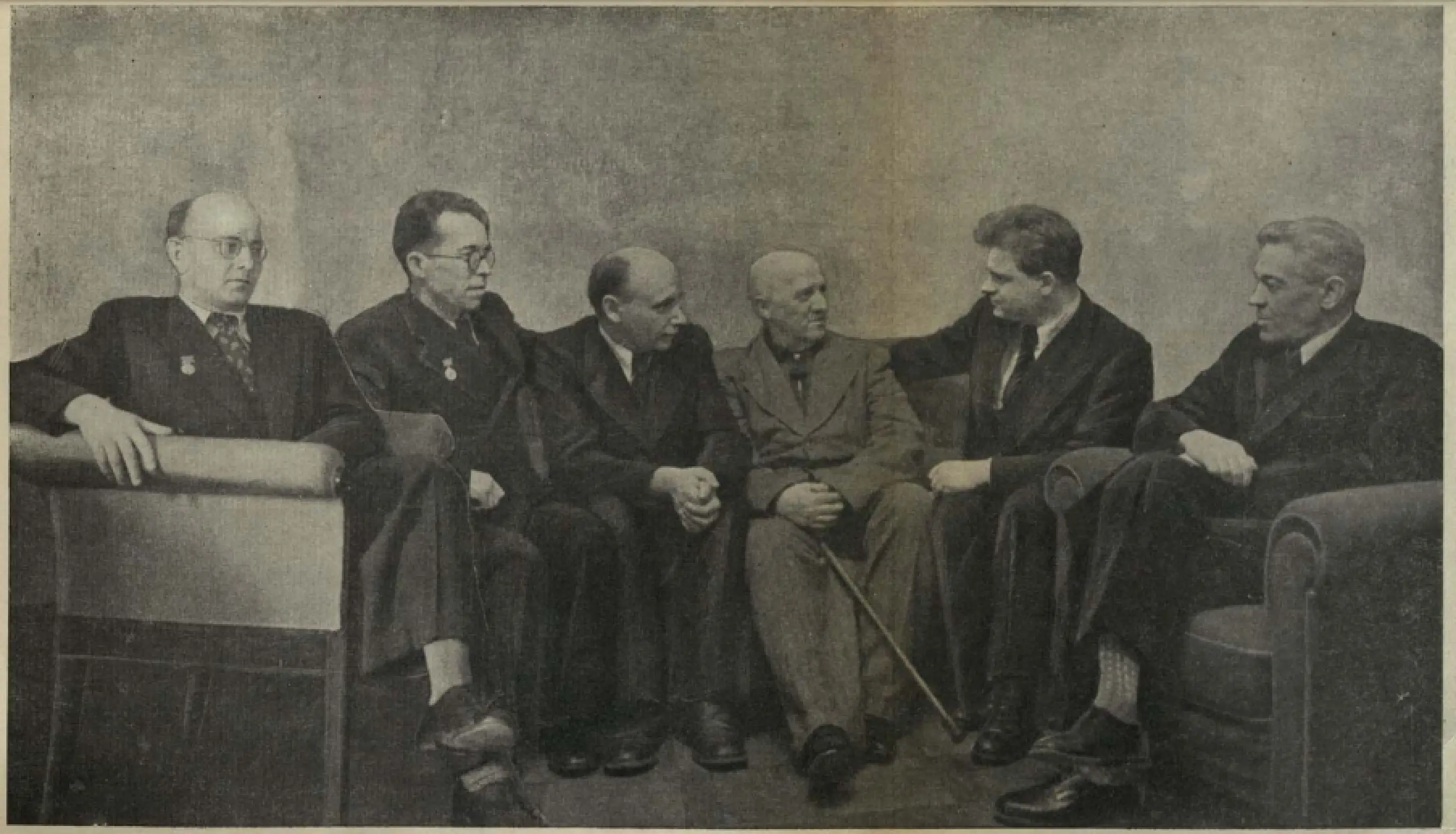In my PhD thesis, I conducted a content analysis of 13 books specializing in the history of Soviet music. For each book, I examined its responses to a set of key historical questions, including:
- Why were the ASM (Association for Contemporary Music) and RAPM (Russian Association of Proletarian Musicians) dissolved in 1932?
- Why did Prokofiev return to the USSR in 1936?
- Why was Shostakovich’s Lady Macbeth of Mtsensk censored, while Dzerzhinsky’s Quiet Flows the Don was praised?
- Why was the premiere of Shostakovich’s Fourth Symphony canceled?
- Why was Shostakovich’s Fifth Symphony acclaimed?
- Why did the debate over formalism end when World War II broke out in 1941?
- Why was Muradeli’s The Great Friendship censored? What were Zhdanov’s objectives in organizing the first Composers’ Congress?
- Why did Shostakovich agree to travel to New York in 1949 and deliver his speech?
- Why were the operas Heart and Soul (Zhukovsky) and Bogdan Khmelnitsky (Dankevich) first praised and then later banned1,2?
- What was the significance of the 1958 document On Rectifying Errors in the Evaluation of the Operas The Great Friendship, Bogdan Khmelnitsky, and From All One’s Heart?
My original conclusion: soviet musicology = individualist
I found that all these works shared a common assumption: that Soviet music was inherently conservative and lagged behind the historical development of Western European avant-garde music.
At the time, I attributed this assumption to individualism, based on my initial hypothesis that Western historiography is primarily shaped by an individualist ideology. My reasoning was that if the evolution of musical language was seen as autonomous—detached from material historical conditions—then it aligned with an individualist worldview that prioritizes the genius of the composer over economical and political events.
Why this conclusion was wrong
In retrospect, I forced this conclusion.
I spent significant time classifying the books into different intellectual tendencies based on their answers to my historical questions. Some aligned more closely with my individualism hypothesis, while others did not. However, because I started with that hypothesis in mind, I unconsciously guided my analysis to fit it.
A more straightforward explanation for the shared assumption in these books—the idea that Soviet music was “backward” compared to European avant-garde music—is that it stems from the ideology of art for art’s sake.
Avant-garde aesthetics were based on free experimentation with musical language, detached from social function and the public. This coincides with the ideology of art for art’s sake, which assumes that art develops independently of material history and political struggles.
Instead of being primarily an expression of individualism, the Western narrative about Soviet music aligns more closely with idealism, in the philosophical sense. It assumes that history is driven by the autonomous evolution of artistic ideas rather than by changes in the means and relations of production.
Idealism provides a much stronger foundation for the notion of an independent, self-sufficient musical language, evolving purely through its own internal problems and the vision of great composers.
Idealism is unscientific: it assumes that there is no causal chain between material reality and artistic ideas (such as musical works). This, in turn, absolves musicologists from the need to study and explain these causes. Ultimately, it leaves no objective criteria for evaluating the ideas propagated in these works other than their own internal logic, the supposed genius of composers, or arbitrary aesthetic trends.
Some Final Thoughts and Provocations
- The striking similarity between the ideas presented in these works and those found in Olkhovsky’s book — one of the books I analyzed, which was (indirectly) funded by the CIA — suggests that Western historiography of Soviet music remains, fundamentally, a form of propaganda.
- But propaganda itself is not necessarily bad — it depends on whether it propagates a true idea or not. The idea propagated by these books is false.
- Additionally, most of these works are poorly written:
- They lack scientific rigor.
- They often ignore or distort evidence.
- Worse, some blatantly falsify historical facts.
- Even at their best, these books rest on unscientific foundations.
- Their philosophical grounding is far more conservative than their rhetoric suggests.
- When writing or analyzing Soviet music, one must be explicit about their underlying assumptions. These works assume a perspective as if it were common sense, which cannot be the case.
The Books Analyzed
EDIT: added in 2025-03-13
In case you are curious:
ABRAHAM, G. Eight Soviet Composers. London: Oxford University Press, 1943.
OLKHOVSKY, A. Music Under the Soviets: The Agony of an Art. New York: Frederick A. Praeger, 1955.
BAKST, J. A History of Russian-Soviet Music. New York: Dood, Mead & Co., 1966.
SCHWARZ, B. Music and Musical Life in Soviet Russia. Bloomington: Indiana University Press, 1983.
MAES, F. A History of Russian Music: From Kamarinskaya to Babi Yar. Berkeley: University of California Press, 2002.
EDMUNDS, N. Soviet Music and Society Under Lenin and Stalin: The Baton and Sickle. London: Routledge, 2004.
FAY, L. E. Shostakovich: A Life. Oxford: Oxford University Press, 2005.
TARUSKIN, R. On Russian Music. Berkeley: University of California Press, 2009.
MORRISON, S. The People’s Artist: Prokofiev’s Soviet Years. New York: Oxford University Press, 2009.
BUENO, M. A. S. Círculos de Influência: A Música na União Soviética da Revolução Bolchevique às Gerações Pós-Shostakovitch. São Paulo: Algol Editora, 2010.
FROLOVA-WALKER, M. Stalin’s Music Prize: Soviet Culture and Politics. New Haven: Yale University Press, 2016.
FAIRCLOUGH, P. Classics for the Masses: Shaping Soviet Musical Identity, 1917-1953. New Haven: Yale University Press, 2016.
HAKOBIAN, L. Music of the Soviet Era: 1917-1991. 2nd ed. London: Routledge, 2017.
